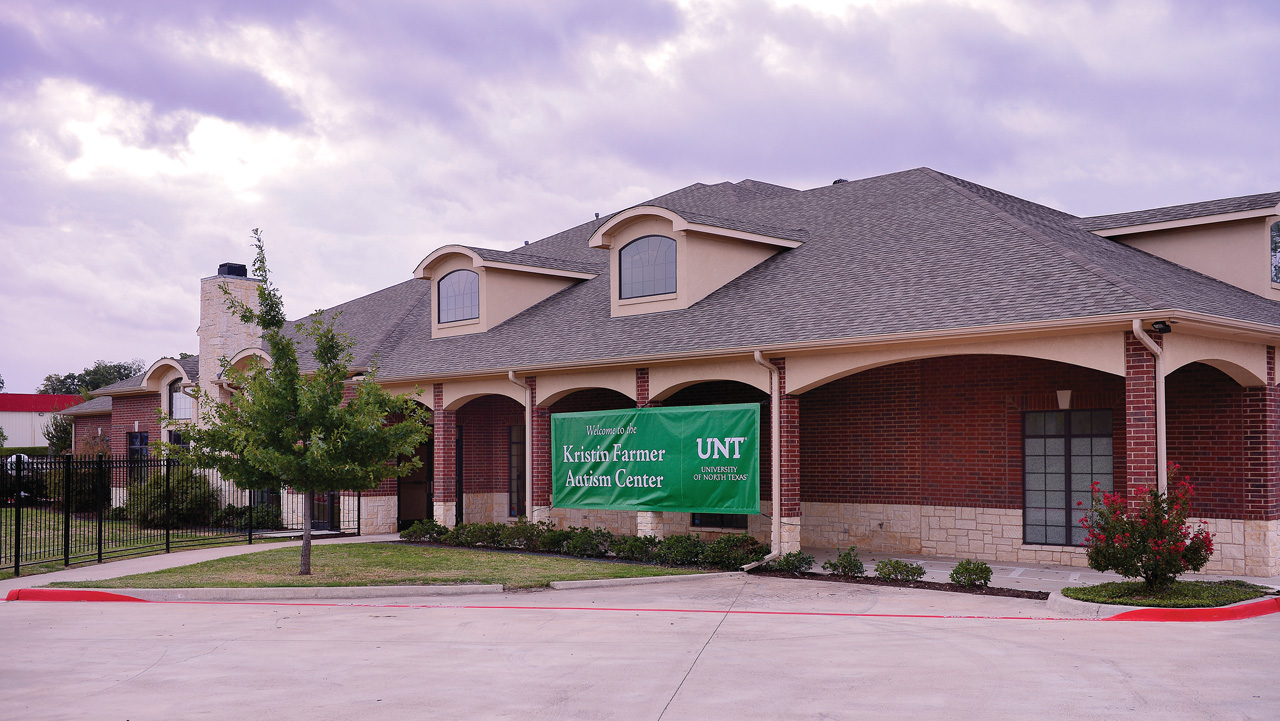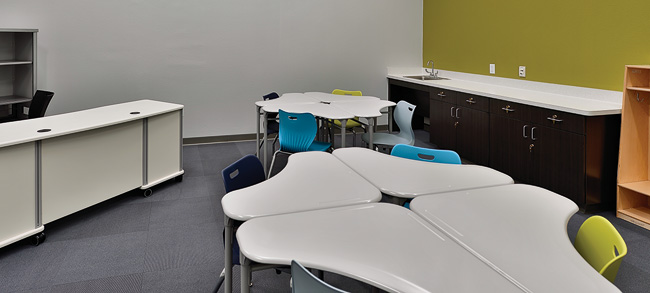Kristin Farmer Autism Center
UNT's new center will serve the community with cutting-edge autism interventions and
treatments.
September 30, 2012

Kristin Farmer Autism Center (Photo by Michael Clements)
Kristin Farmer Autism Center
Many families caring for a child with an autism spectrum disorder need testing and more effective treatments, and face long commutes from school to diagnostic facility, to therapy center, to doctor's office. UNT's Kristin Farmer Autism Center, opening in Denton in September, will serve as a comprehensive resource for families across the North Texas region. The center is a one-stop facility for education, diagnosis, treatment, training and research.
Founded with the help of Kristin Farmer ('95 M.Ed.), CEO of Comprehensive Educational Services Inc., known as ACES, the center will provide high-quality services designed and implemented by top researchers, professors and professionals at UNT.
"The opening of the center is the realization of a dream of mine for many years," Farmer says. "Together with UNT, I proudly share in this commitment to develop a cutting-edge, world-renowned center for individuals with autism and their families."
Education

Autism center classrooms. (Photo by Michael Clements)
Four classrooms will support full-time individualized instructional activities for students with autism spectrum disorders. The center also features classroom space for UNT students taking special education, applied behavior analysis, and speech and hearing therapy courses.
Diagnostics and Treatment
Two large rooms will be used for:
- comprehensive diagnostic testing and evaluation in autism determination
- early childhood development
- global educational assessments and assessments of academic, developmental, vocational, adaptive behavior and social skills
Nine therapy rooms offer space for:
- applied behavior analysis
- speech and language therapy
- play, music, art and recreational therapy
- nutritional services
- psychological counseling for individuals, families, parents and siblings
The building also features a large occupational and physical therapy room.
Research and Service
Experts from several areas will collaborate at the center, continuing UNT's history of expanding autism research and programs. UNT is home to the first graduate training program accredited by the Association of Behavior Analysis International, and graduates help thousands of children each year. Graduate-level concentrations in autism intervention and research are offered within the special education program. And the speech and hearing program provides undergraduate education and clinical services that help people with autism spectrum disorders.
Technology

Video technology rooms (Photo by Michael Clements)
Video capture technology will give students, researchers, families and professionals an advantage by allowing remote viewing of activities throughout the center. Cameras will replace antiquated two-way mirrors and allow for fine-tuned data collection and analysis. And video teleconference systems that provide research resources will allow for collaboration with partners around the world.